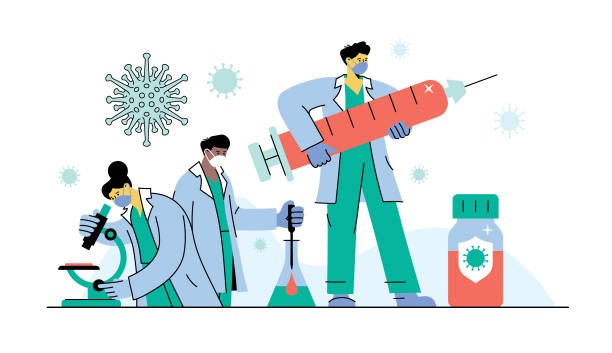Filters for Medical Care of Work-Related Injuries
Nuestro CMS está desarrollado para simplificar el proceso de publicación de contenidos digitales. El resultado que obtendrás es un Periódico o Revista Digital, con diseño y características profesionales.
Workers: Between Need and Indifference to Health Care
In the world of work, workers' health is a fundamental factor for productivity and well-being. However, despite the importance of health care, many workers avoid seeking it, either due to fear, ignorance, or lack of resources.
Reasons behind the lack of medical care
Fear of retaliation: Some workers fear that seeking medical care may be seen as a sign of weakness or lack of commitment to work. This can be especially true in demanding or competitive work environments.
Lack of knowledge: Many workers are unaware of their rights regarding occupational health or do not know how to access available medical services. This can be especially true for migrant or low-income workers.
Lack of resources: Some workers cannot afford to pay the costs of health care, either due to lack of health insurance or the high costs of services. This can be especially true for self-employed or informal workers.
Lack of time: Many workers have long or inflexible work schedules, making it difficult for them to seek medical care. This can be especially true for workers with precarious employment or multiple jobs.
Normalization of discomfort: Some workers may normalize discomfort or mild symptoms, believing that it is not necessary to seek medical care unless the situation worsens. This can delay diagnosis and treatment of serious illnesses.
Consequences of lack of medical care
Lack of medical care can have serious consequences for workers' health and well-being. Some of these include:
Worsening of illnesses: Lack of medical care can lead to mild illnesses becoming serious or chronic, which can affect quality of life and ability to work.
Disability: In some cases, lack of medical care can lead to disability, which can have a significant impact on a worker's personal and professional life.
Death: In extreme cases, lack of medical care can even lead to death.
Call to action
It is essential that steps be taken to ensure that all workers have access to timely and quality health care. This includes:
Promoting a culture of prevention: It is important to educate workers about the importance of health care and to foster a culture of prevention.
Facilitating access to medical services: Barriers to access to medical services, such as costs, lack of time or lack of knowledge of rights, need to be removed.
Ensuring quality of care: It is essential that workers receive quality health care that is timely, effective and personalized.
Only in this way can we ensure that workers enjoy good health and can develop their full potential.
Occupational health in the spotlight: how does the lack of medical care impact epidemiological surveillance?
Epidemiological surveillance, a key tool for detecting and preventing diseases in the workplace, is seriously compromised when workers avoid seeking medical attention. This situation, driven by various factors such as fear, lack of resources or the normalization of discomfort, creates an information gap that hinders the identification of risks and the implementation of preventive measures.
Silence that harms: consequences for epidemiological surveillance
Difficulty in detecting outbreaks: When workers do not report their symptoms or do not seek medical attention, early detection of outbreaks of occupational diseases is made difficult. This can delay the implementation of control measures and increase the number of those affected.
Underreporting of diseases: Lack of medical care can lead to underreporting of occupational diseases, which distorts statistics and makes it difficult to identify trends and patterns. This can prevent adequate preventive measures from being taken.
Obstruction of research: Lack of information on cases of occupational diseases can hinder research and the identification of risk factors. This can limit the ability to develop effective prevention strategies.
Ineffectiveness of interventions: When workers do not seek medical care, it is difficult to assess the effectiveness of preventive interventions and measures. This can lead to the implementation of ineffective or inappropriate measures.
A call to action: protect occupational health and strengthen epidemiological surveillance
It is essential that measures are taken to ensure that workers have access to timely and quality medical care. This includes:
Promoting a culture of prevention: It is important to educate workers about the importance of medical care and foster a culture of prevention.
Facilitating access to medical services: Barriers to access to medical services, such as costs, lack of time or lack of knowledge of rights, need to be removed.
Ensuring quality of care: It is essential that workers receive quality medical care that is timely, effective and personalized.
Temas relacionados:
También te puede interesar
Esta web se reserva el derecho de suprimir, por cualquier razón y sin previo aviso, cualquier contenido generado en los espacios de participación en caso de que los mensajes incluyan insultos, mensajes racistas, sexistas... Tampoco se permitirán los ataques personales ni los comentarios que insistan en boicotear la labor informativa de la web, ni todos aquellos mensajes no relacionados con la noticia que se esté comentando. De no respetarse estas mínimas normas de participación este medio se verá obligado a prescindir de este foro, lamentándolo sinceramente por todos cuantos intervienen y hacen en todo momento un uso absolutamente cívico y respetuoso de la libertad de expresión.
No hay opiniones. Sé el primero en escribir.












